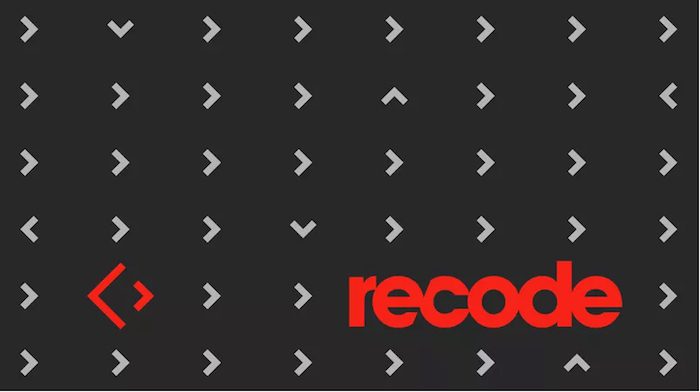
“I have nothing but not-nice things to say about people,” said Kara Swisher. “But Jim Bankoff has been a fantastic leader.”
It’s been a year since Vox Media, the company helmed by CEO Bankoff, acquired Recode, the tech site cofounded by Swisher and Walt Mossberg in 2014. On Sunday, the site switched over to Vox’s proprietary publishing platform, Chorus, and the relaunch is giving Recode’s team a chance to talk about some of the other changes they plan to make going forward. (They’ve also dropped that darn slash.)
Dan Frommer, Recode’s new editor-in-chief and most recently the technology editor at Quartz, said that the way Recode differentiates itself from other tech sites — including its Vox Media sibling The Verge — is through its focus on business. “Tech is business now,” he said. “There’s a huge opportunity to be a widely read, digitally native business site that uses tech as our lens, and I don’t think that’s out there. There are a lot of smart new business sites, like Quartz, and great tech sites, but I can’t think of any that will marry the two the way I plan to.” (The Verge, he says, is attempting a different approach, using technology as a lens into culture. “The Verge is explicitly not a business publication,” Verge editor-in-chief Nilay Patel said last year.)
Having a unique perspective, however, doesn’t mean that Recode can eschew concepts that have become key to other sites’ business models — like distributed content and video.
Frommer has hired Recode’s first-ever engagement editor, Meghann Farnsworth, who was the managing director of distribution, operations, and engagement at the Center for Investigative Reporting. Her first day at Recode is Monday. “We think of our engagement editor as a really interesting hybrid role,” Frommer said. “It’s partially being the public brand voice, partially being our head of data and analytics, and partially working on publishing into other formats — starting with social media, but also, potentially, any platform, from messaging apps to Snapchat.”
As for video, “we’ve been really behind, mostly because we didn’t know what we wanted to do,” said Swisher. “We tried a few things last year and it didn’t work out because we were completely thoughtless about. We’re thinking hard about the attributes of Recode that would lend themselves to video. We do interviews very well, but watching a video of an interview is like watching paint dry.”So, she said, Recode needs to take the areas where it’s strong — analytical pieces, scoops, “access to a lot of high-level people” — and figure out how those translate into engaging videos.
Swisher’s focus on high-level access made me think of another, smaller tech/business site with a focus on access: Jessica Lessin’s The Information, which charges $399 a year. Would Recode ever consider charging for some content (making it the first Vox site to do so)?
The Information’s audience is “much smaller” than Recode’s, Swisher said, but “I think what [Lessin] is doing is great.” Recode’s team has thought, over the years, about charging for some type of niche content, she said, and the idea still floats around. “Fintech is really big. There’s probably an opportunity to do a financial technology newsletter kind of business. VCs are another area we cover well. There could be a newsletter or online thing that just focuses on everything about VCs. You’d have to go super-deep in areas that people have an obsession with.”
Paid content is not front of mind for Recode at the moment, however, Swisher said. Instead, in addition to video and the new opportunities awarded by Chorus, it will expand its successful podcasts and conferences.“Vox has done exactly what they said they would do, which is leave us alone to try to figure it out and figure out what our readers love,” Swisher said. “[Bankoff] is not a big shiny look-at-me person, and given how things have changed in the market, I really appreciate that. Especially now, as things get tighter and advertising is under all kinds of challenges, it’s nice to be under someone who’s really considered.”